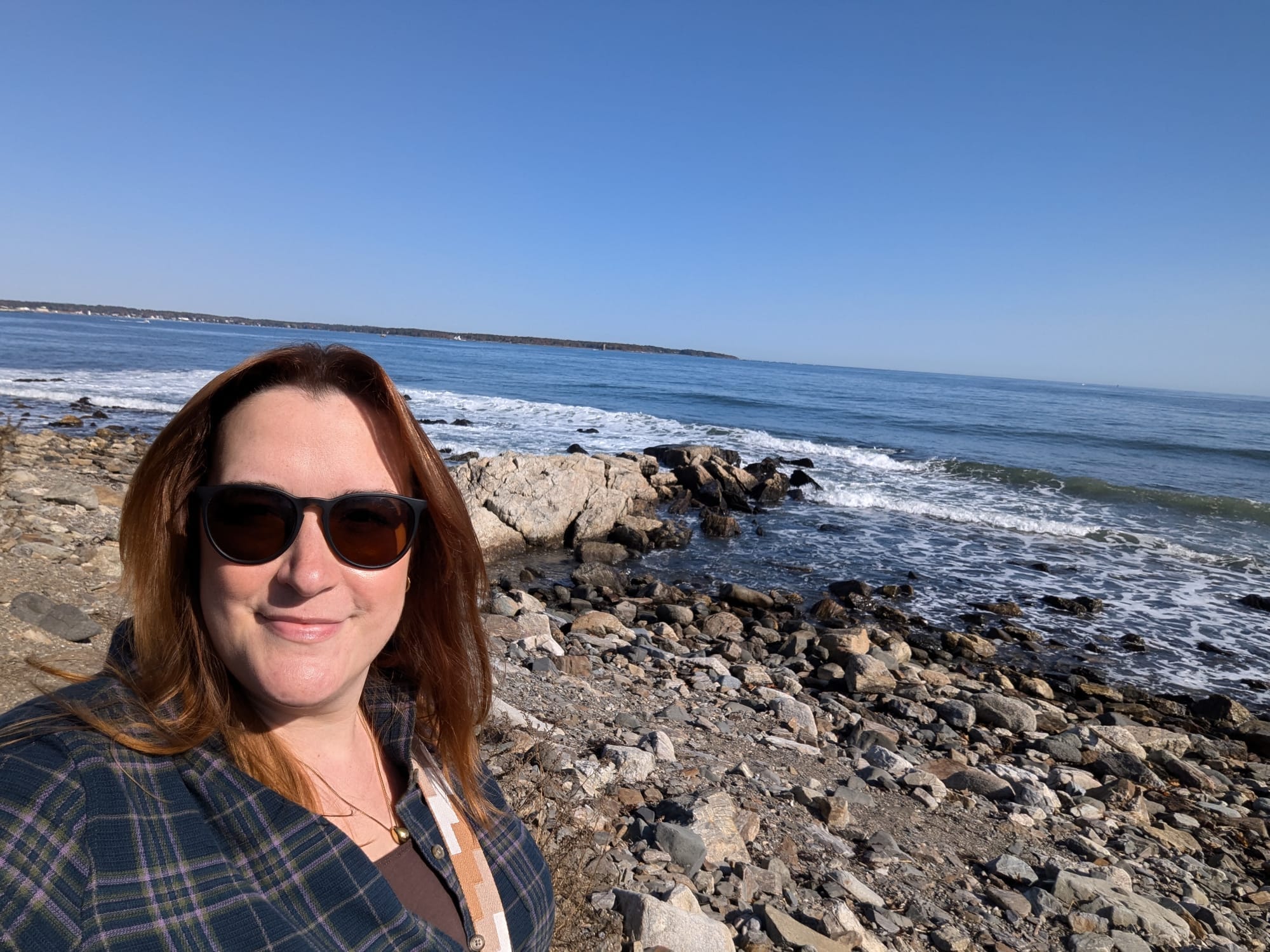Hi, I'm Rosie!
I'm a behavioural scientist with a PhD in Health Psychology. I'm also fat and disabled.

I’ve spent my career understanding health behaviour, and how best to change it. I've been lucky enough to work with some of the world leading experts in health behaviour change. I also have been on my own journey of getting off the "all or nothing" rollercoaster, and looking after my body and my health in a way that makes me feel good, not punished.
For me, this is a personal journey
When I was young I was naturally slim, but as I got older, my weight gradually crept up. I spent years cycling between phases of punishing diets and exercising regimes, and “rebelling” by gaining back all the weight and more. In 2018 I was also diagnosed with a disability: hypermobility spectrum disorder. The best way to manage it is through physiotherapy-type exercises. However, my relationship with exercise had always been about weight loss, and had always been a phase of either doing “too much” or nothing at all. I really struggled with getting into a regular practice of the right kind of exercise, and my body suffered for it.
I’m supposedly an “expert” in helping people to do all the right things for their health, but I really struggle with sticking to it for myself.
Then, a couple of things changed for me.
Turning points
In 2018, I quit dieting. I discovered a world of influencers, writers, podcasters, and providers who were talking about accepting your fat body, and how a focus on body weight is unhelpful. There is evidence to back up this view, for example:
- The relationship between BMI and health outcomes isn’t linear (i.e. it isn’t always worse for your health to be fatter) - and even “obese” groups with a BMI of 30-35 have similar health outcomes to people in the “normal” range
- People can be fat and healthy, and slim and unhealthy
- “Weight cycling” (as I was experiencing) has been shown to be bad for your health
- Fundamentally, even if the above wasn’t true, it doesn’t matter because for most people, diets don’t work in the long-term. While people may see initial improvements, these effects tend to disappear a few months later.
This paper gives a great overview of the evidence - but I’ll also be sharing more on this in the future!
This inspired me to abandon the quest to be smaller, and instead work on accepting myself. I explored practices like intuitive eating and joyful movement. I gained weight, but it’s stabilised - I now identify as “fat” (I see it as a descriptor, rather than a negative thing). I’m much happier, but there’s still always a little niggle in my mind about my long-term health.
While this improved my relationship with food, exercise was still a struggle. I tried following the mantra of intuitive & joyful movement (i.e. moving in ways that you love - for me it’s dancing to Fitness Marshall routines 💃🏻), but I knew that there was a whole category of repetitive strength training exercises I needed to do for my body, that I didn’t find joyful, and so found it hard to stick to.
Then in 2024, I discovered a very specialist exercise programme (from the brilliant Chimera Health), designed for people like me. For the first time, I found myself sticking to it - exercising multiple days a week, in a way that suited my bendy body, and progressing over time. Eight months later, and I’m still going. I feel for the first time like I’m caring for my body, not seeking to change or punish it - and it makes me feel good.
In both cases, what unlocked me was experts in a different paradigm of approaching food and exercise, to those which I’d seen in my health psychology training, and in mainstream behaviour change support (oh, the years I gave to My Fitness Pal and Strava that I’ll never get back!). I did use some of my behavioural science learnings (particularly when trying to form new habits), but generally it felt like the journey I was on with my own body was disconnected from the behavioural science that I was doing at work. I recall working on a project involving Type 2 Diabetes, and hearing harrowing stories of patients who were blaming themselves, or avoiding seeking healthcare for worrying symptoms because “the doctor will just tell me to lose weight”. I wanted to scream “there must be another way for you!”, but I felt ill-equipped to apply a fat-accepting, disability-inclusive behavioural science - when most of the world was still focussed on making bodies smaller and more “perfect”.
The solution? health coaching: sustainable change for all bodies
I'm now bringing the personal and professional together, working one-to-one, helping people to make changes in their own lives - through a new science-informed, size-inclusive, health coaching approach.
Traditional approaches tend to focus on weight loss as a primary goal, despite growing evidence that this isn't sustainable in the long-term. Instead, I focus on body acceptance, intuitive approaches, finding enjoyment, and ultimately, sustainable change.
In this blog I share my thoughts on this approach to behaviour change, informed by my own experiences, and what the peer reviewed research says (I read the journal articles, so you don't have to!). Whether you’re someone navigating your own well-being, a professional looking to improve your practice, or even a business interested in better supporting your community, I hope you’ll find something valuable here. You can also find me on instagram on @DrRosieWebster.
I also work with people one-to-one, supporting them in making sustainable changes to their health - you can read more about that here.
I’m always open to conversations, collaborations, and new ideas. If something here sparks your interest, let’s connect!